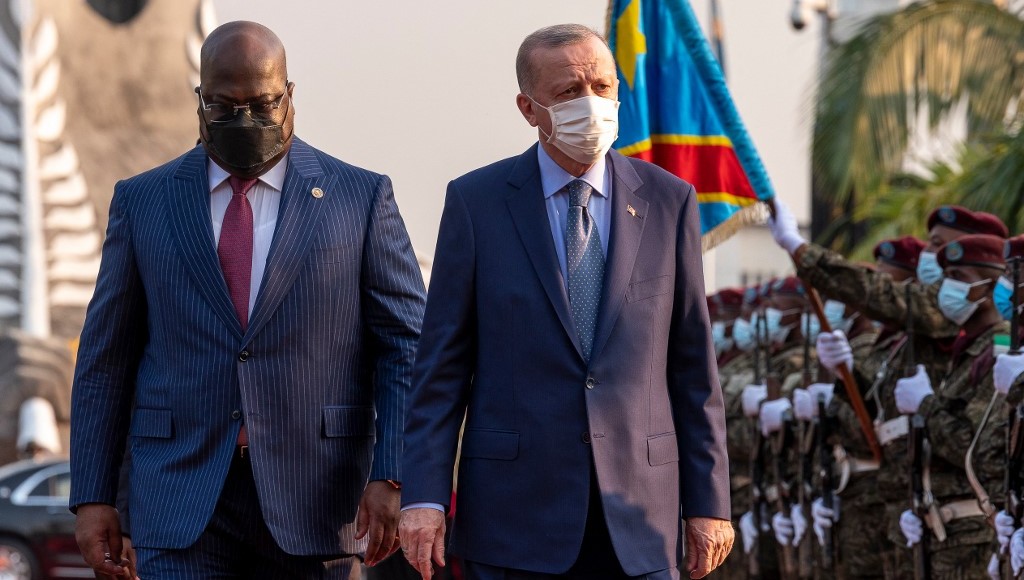Bilal Erdoğan, the son of Turkey’s president, has said France is disturbed by the visits of his father to West Africa and the increasing Turkish influence in the region because it sees it as its own backyard, the state-run Anadolu news agency reported.
“When our president visits western Africa, France gets irked and says, ‘What is your business in my backyard?’” said Bilal Erdoğan, adding that Turkey’s prestige has increased in the eyes of the world over the past 20 years since his father’s Justice and Development Party (AKP) has been in power.
His was speaking at an event held by the pro-government Turkey Youth Foundation (TÜGVA) on Thursday on whose advisory board he sits.
President Recep Tayyip Erdoğan, who has long presented himself as a friend to Africa, paid his last visit to the continent this week. He started a tour on Sunday, visiting DR Congo and Senegal, but had to postpone his visit to Guinea due to the crisis in Ukraine and returned to Turkey on Tuesday.
Bilal Erdoğan said there are people who share the same religion as Turkey in Africa and that Turkey is not going to ask France where it can conduct commercial activities.
“You will not go to a place France tells you not to. This is not something Turkey can accept,” said Bilal Erdoğan.
President Erdoğan and his government frequently accuse the French government of having colonial designs on the continent while the French president accuses Turkey of stirring up anti-French sentiment in Africa.
Since its 2019 intervention in the Libyan civil war, Turkey has steadily expanded its African footprint as it seeks to replace Western influence on the continent. Its investments include a mosque in Ghana, an Olympic pool in Senegal and an army base in Somalia training 10,000 local troops.
Meanwhile, Morocco and Tunisia received their first delivery of Turkish drones, produced by the private Baykar company, run by one of Erdoğan’s sons-in-law, in September, as part of contracts that include military training. For months, the international community has speculated about a similar Turkish arms deal with Ethiopia.
Photographs of missile fragments provided the first material evidence that Ethiopia used a Turkish drone in January in an attack that killed 58 civilians sheltering in a school.


